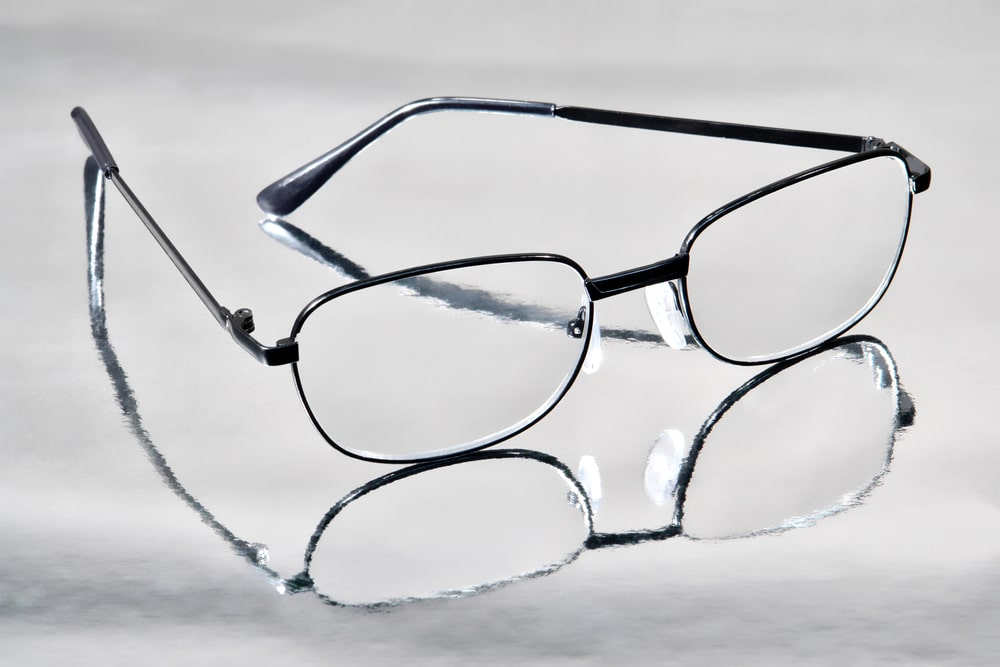Why Residents Are Choosing Polycarbonate Glasses
Nowadays, choosing a pair of eyeglasses is about more than just style. You also need to consider the material your lenses are made from. Lens material is normally glass, plastic, or polycarbonate. Here’s what you need to know about polycarbonate glasses and the benefits of these lenses for eyeglasses.
What Are Polycarbonate Glasses?
Polycarbonate is a specific type of plastic. Besides its use in eyeglass lenses, it is also used for car headlights, CDs and DVDs, and many other industrial applications. Polycarbonate lenses are very strong, making it an excellent lens material. It was invented independently in 1953 by Dr. Hermann Schnell of Bayer and Dr. Daniel Fox of General Electric.
Book an appointmentBenefits of Polycarbonate Glasses
Safe & Durable
Polycarbonate is over 200 times stronger than glass, extending the average lifespan and reducing the need for replacements.
The Vision Council described polycarbonate glasses as “virtually unbreakable.” A study published in the Journal of the American Medical Association also found that polycarbonate lenses were more impact-resistant than glass or other types of plastic lenses. Using five types of projectiles including golf and tennis balls, the study found that polycarbonate lenses didn’t shatter, even at high impact.
Lightweight And Thin
One of the greatest benefits of polycarbonate glasses is that they are often thinner than other types of lenses. This makes them ideal for people with strong prescriptions. Lighter, thinner eyeglasses are less likely to slip off your nose and are more comfortable for everyday wear.
UV Protection
Extended exposure to ultraviolet (UV) radiation from the sun can cause damage to your eyes. This can include cataracts and macular degeneration, along with other eye problems. Luckily, polycarbonate lenses already block out harmful UV rays from the sun. And, unlike some other types of eyeglass lenses, they do not require any additional coating for sun protection.

Polycarbonate Lenses vs Other Types of Lenses
Glass Lenses
Polycarbonate lenses are lighter and more durable than glass lenses. On the other hand, glass lenses have a higher level of optical clarity, meaning that glass lenses provide sharper and clearer vision. While both types of lenses have their benefits, it’s best to consult with an eye care professional to determine which type of lens is right for you.
Plastic Lenses
Initially introduced as an improved option over traditional plastic lenses, polycarbonate lenses have since maintained their reputation as a superior choice. Polycarbonate lenses offer the advantages of being lighter in weight, thinner, and more resistant to impact than previous iterations of plastic lenses.
How much do Polycarbonate Glasses Cost?
Polycarbonate lenses cost more than their plastic counterparts, however, the price can be brought down with vision insurance and frame allowance. While plastic lenses are generally cheaper, polycarbonate lenses may save you in the long run since you can expect less replacement costs.
Are Polycarbonate Glasses Right For Me?
Ophthalmologists often recommend polycarbonate lenses for children because of the lenses’ durability. Adults who regularly play sports or who hold active jobs would also benefit from these types of lenses. Your eye doctor can help you decide if polycarbonate lenses are appropriate for your specific prescription and lifestyle.
If you need help navigating the world of prescription eyewear, or if you need to make an eye exam appointment, contact Michigan Eye Institute.
We have several convenient Michigan eye clinic locations; find one near you today!
Book an appointmentComments are closed.



